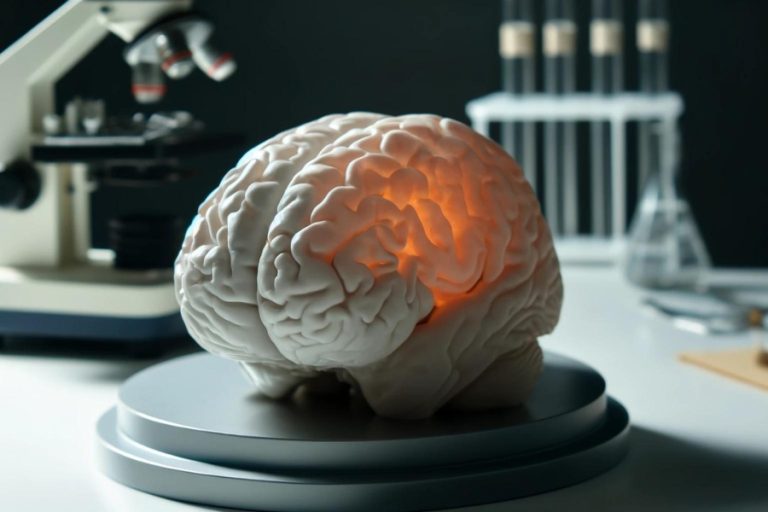Introduction: Unveiling Anxiety's Impact
Anxiety, a common yet often misunderstood condition, permeates every aspect of modern life. From the pressures of work to personal relationships, its effects are far-reaching and profound. Many people experience anxiety without fully recognizing its presence or understanding its impact on their daily lives.
Understanding the pervasiveness of anxiety is crucial. It doesn’t just manifest in obvious ways like panic attacks; it can also show up as chronic worry, irritability, or physical symptoms like headaches and muscle tension. This widespread nature makes it essential to recognize and address anxiety promptly.
Addressing anxiety is not just important for mental health but also for overall well-being. Left unchecked, anxiety can lead to severe physical health issues, strained relationships, and decreased productivity. By shedding light on anxiety’s hidden effects, we can better equip ourselves to manage and mitigate its impact.
Table of Content
- Introduction: Unveiling Anxiety’s Impact
- Understanding Anxiety Basics
- Causes and Triggers of Anxiety
- Effects of Anxiety on Life
- Coping Strategies and Treatments
- Supporting Someone with Anxiety
- Conclusion: Moving Forward with Confidence
- Frequently Asked Questions
Understanding Anxiety Basics
Defining Anxiety: A Simple Overview
Anxiety is more than just occasional worry or fear. It’s a pervasive condition that can affect every aspect of one’s life. At its core, anxiety is the body’s natural response to stress. It’s a feeling of fear or apprehension about what’s to come, whether it’s a job interview, a first date, or a public speaking event. However, when anxiety becomes excessive, it can interfere with daily activities and diminish the quality of life.
In my opinion, understanding the basics of anxiety is crucial for recognizing its signs early on. Anxiety can manifest in various forms, from generalized anxiety disorder (GAD) to panic disorder, social anxiety, and specific phobias. Each type has unique characteristics but shares common underlying themes of intense, excessive, and prolonged worry and fear.
Common Symptoms of Anxiety Disorders
Anxiety disorders present a range of symptoms that can vary significantly from person to person. Common psychological symptoms include persistent worry, fear, and a sense of impending doom. These feelings often lead to difficulties in concentration, restlessness, and irritability. For many, these symptoms can become so overwhelming that they disrupt daily activities and responsibilities.
Physical symptoms are equally troubling and can include headaches, muscle tension, fatigue, and gastrointestinal issues. Some individuals may experience rapid heartbeat, sweating, trembling, and shortness of breath. Recognizing these symptoms is the first step towards seeking appropriate help and managing anxiety effectively.

Causes and Triggers of Anxiety
Biological and Genetic Factors
Anxiety can have deep-rooted biological and genetic causes. Research indicates that anxiety disorders often run in families, suggesting a genetic component. Certain genes may predispose individuals to anxiety, influencing the way their brain regulates fear and stress responses. Neurotransmitters like serotonin and dopamine play significant roles in mood regulation, and imbalances in these chemicals can contribute to anxiety.
Additionally, brain structures such as the amygdala and hippocampus are involved in processing emotions and memories. Abnormalities or overactivity in these areas can lead to heightened anxiety responses. Understanding these biological underpinnings can help in developing targeted treatments and interventions to manage anxiety more effectively.
Environmental and Psychological Triggers
Environmental factors also play a crucial role in the development and exacerbation of anxiety. Stressful life events, such as the loss of a loved one, job changes, or relationship issues, can trigger anxiety. Chronic stress, whether from work, financial pressures, or personal relationships, can keep the body in a prolonged state of alertness, leading to anxiety disorders.
Psychological factors, including personality traits and coping mechanisms, influence how one responds to stress and anxiety triggers. People with certain personality traits, such as perfectionism or a tendency to overthink, may be more prone to anxiety. Additionally, learned behaviors and past experiences can shape how individuals perceive and react to stressors, further contributing to anxiety.
Related Article:
Effects of Anxiety on Life
Physical and Mental Health Impacts
Anxiety doesn’t just affect your mind; it also takes a significant toll on your body. Physically, it can manifest as chronic headaches, muscle tension, and fatigue. Over time, the constant state of stress and worry can lead to more severe health issues, such as high blood pressure and heart disease. These physical symptoms are often overlooked but are crucial indicators of the broader impact of anxiety.
Mentally, anxiety can lead to a host of issues, including persistent worry, difficulty concentrating, and irritability. It can also increase the risk of developing other mental health conditions like depression. The constant battle with anxiety can make everyday tasks feel overwhelming, leading to a decline in overall mental well-being. Addressing these impacts is essential for holistic health.
Disruptions to Daily Routines
Anxiety can wreak havoc on daily routines, making simple tasks seem daunting. For example, someone with social anxiety might avoid social gatherings or public places, disrupting their social life and potentially leading to isolation. Work performance can also suffer due to difficulty concentrating, meeting deadlines, or interacting with colleagues. This can result in a vicious cycle where anxiety worsens due to missed opportunities and increased stress.
Personal life is equally affected, with anxiety interfering with relationships and household responsibilities. The constant feeling of being on edge can lead to procrastination or avoidance behaviors, further disrupting daily routines. Recognizing and addressing these disruptions is key to managing anxiety effectively and maintaining a balanced life.

Coping Strategies and Treatments
Effective Therapies for Anxiety
Various therapies have proven effective in treating anxiety. Cognitive Behavioral Therapy (CBT) is one of the most well-known and widely used approaches. It helps individuals identify and change negative thought patterns and behaviors that contribute to anxiety. By challenging these thoughts and learning new coping strategies, individuals can significantly reduce their anxiety symptoms.
Medication is another option for managing anxiety. Antidepressants, anti-anxiety medications, and beta-blockers can help control symptoms. However, it’s important to consult with a healthcare professional to determine the best course of treatment. Therapy combined with medication often provides the most effective results, helping individuals regain control over their lives.
Self-Help Techniques and Changes
Self-help techniques can also play a crucial role in managing anxiety. Incorporating regular physical activity into your routine can help reduce stress and improve mood. Exercise releases endorphins, which are natural mood lifters. Additionally, practicing mindfulness and meditation can help calm the mind and reduce anxiety.
Making lifestyle changes, such as maintaining a healthy diet, getting adequate sleep, and limiting caffeine and alcohol intake, can also make a significant difference. Establishing a routine and setting aside time for relaxation and hobbies can help create a balanced life. These self-help strategies empower individuals to take control of their anxiety and improve their overall
Supporting Someone with Anxiety
Recognizing Signs Someone Needs Help
Recognizing the signs that someone needs help with anxiety is the first step in offering support. Symptoms can vary widely but often include excessive worry, restlessness, and physical symptoms like headaches or stomach issues. Behavioral changes, such as withdrawal from social activities or decreased performance at work or school, can also indicate anxiety.
It’s important to approach the person with empathy and understanding. In my opinion, creating a safe and non-judgmental environment encourages them to open up about their struggles. Expressing concern without being intrusive can make a significant difference in helping someone acknowledge their anxiety and seek the necessary support.
Offering Effective Support Strategies
Once you’ve recognized the signs, offering effective support is crucial. Encouraging the person to seek professional help, such as therapy or counseling, can be a valuable step. Providing information about available resources and accompanying them to appointments if needed can show your support.
Additionally, being a good listener is vital. Sometimes, simply being there to listen without offering unsolicited advice can provide immense relief. Helping them establish healthy routines, such as regular exercise or mindfulness practices, can also be beneficial. Supportive actions, no matter how small, can significantly impact someone struggling with anxiety, helping them feel less alone and more capable of managing their condition.

Conclusion: Moving Forward with Confidence
Addressing anxiety is a multifaceted journey that requires understanding, patience, and a variety of strategies. By recognizing its pervasive impact on daily life, we can better equip ourselves and those around us to manage this condition effectively. From understanding the basics and identifying symptoms to exploring causes and finding effective treatments, each step is crucial in the battle against anxiety.
Embracing coping strategies, both conventional and self-help, can make a significant difference. Regular exercise, mindfulness practices, and a supportive network are invaluable tools in managing anxiety. Additionally, professional help, such as therapy and medication, can provide the necessary support to regain control over one’s life. It’s important to remember that seeking help is a sign of strength, not weakness.
Moving forward, it’s essential to foster an environment of understanding and support for those struggling with anxiety. Encouraging open conversations and offering non-judgmental support can help reduce the stigma surrounding mental health. By doing so, we create a world where individuals feel empowered to seek help and manage their anxiety confidently, leading to healthier and more fulfilling lives.
FAQs Section
What are the early signs of anxiety?
Early signs of anxiety can include persistent worry, restlessness, and difficulty concentrating. Physical symptoms such as headaches, muscle tension, and fatigue are also common. Recognizing these signs early can help in seeking timely intervention and managing the condition more effectively.
How can I manage anxiety naturally?
Managing anxiety naturally involves lifestyle changes like regular exercise, a balanced diet, and adequate sleep. Mindfulness practices such as meditation and deep breathing exercises can also help. Reducing caffeine and alcohol intake and maintaining a regular routine can significantly alleviate anxiety symptoms.
Can anxiety cause physical health problems?
Yes, anxiety can lead to various physical health issues. Chronic anxiety can result in headaches, muscle tension, gastrointestinal problems, and cardiovascular issues. Long-term anxiety can also weaken the immune system, making individuals more susceptible to illnesses.
What are the most effective therapies for anxiety?
Cognitive Behavioral Therapy (CBT) is widely regarded as one of the most effective therapies for anxiety. It helps individuals identify and change negative thought patterns. Other effective therapies include exposure therapy, mindfulness-based stress reduction, and sometimes medication, depending on the severity of the anxiety.
How does social media impact anxiety levels?
Social media can significantly impact anxiety levels, often increasing feelings of inadequacy and stress. The constant comparison with others’ seemingly perfect lives can heighten anxiety. Additionally, exposure to negative news and cyberbullying can further exacerbate anxiety symptoms. It’s important to manage social media use mindfully.
